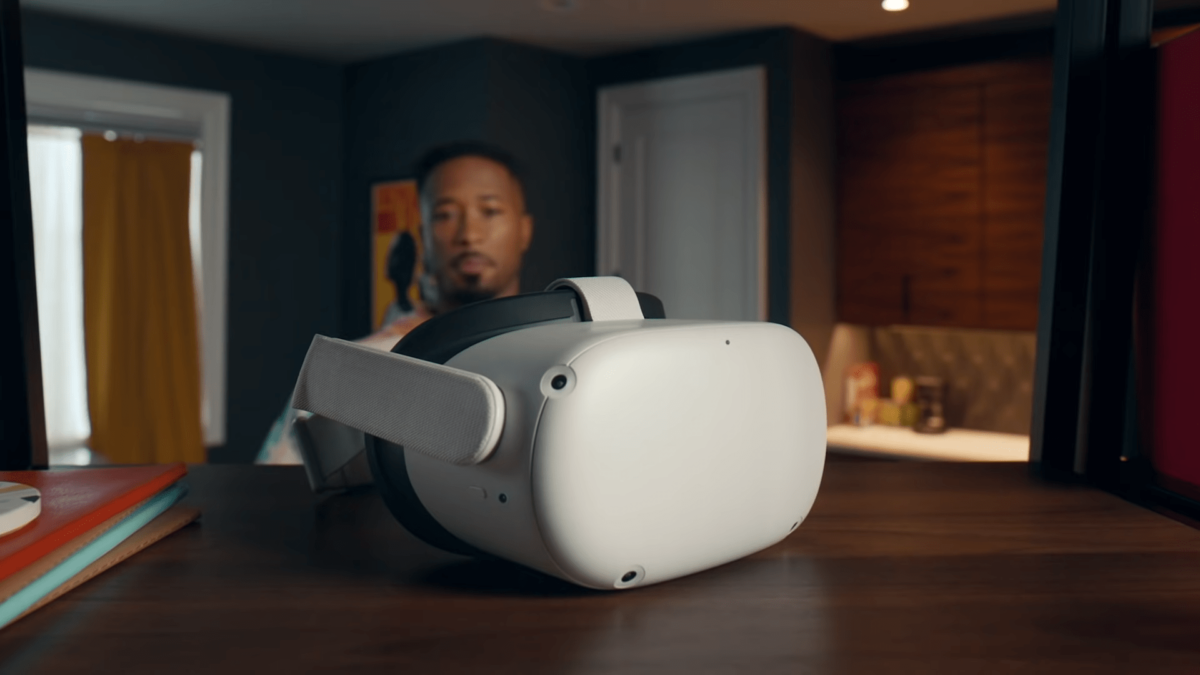Leak reveals sales figures for Meta Quest devices

Meta has been selling VR hardware for a good seven years now, but the company has never revealed sales figures. A leak of an internal presentation now reveals at least the sales figures for the Quest headsets.
Meta unveiled a roadmap for VR and AR products through 2027 in an internal presentation on Tuesday. A leak from this meeting for Reality Labs employees revealed some interesting details, which were published in a report by The Verge.
These include sales figures for the company's current VR headsets, as well as information on the dimensions of the Quest 3. According to Mark Rabkin, vice president of the VR division, the previous Quest headsets (i.e. Quest, Quest 2, and Quest Pro) have sold nearly 20 million units combined.
Nearly 20 million Quest headsets sold
The latest semi-official sales figures for Quest headsets come from Qualcomm. Qualcomm makes the XR2 chip used in the Quest 2 and Quest Pro. In November 2021, CEO Cristiano Amon told investors that the Quest 2 was in the 10 million range at the time.
However, Amon later backtracked, saying that it was only a third-party estimate and not official numbers from Meta. However, Qualcomm should at least know how many XR chips were shipped to Meta and be able to put the third-party estimate into perspective.
But why is Meta not disclosing its VR hardware sales to end all rumors?
Possibly because they are only part of the story, and the less important part: More important is the number of active users. After all, the only indication of long-term market growth is the regular consumption of software and new hardware by returning users. A media device that only comes out of the closet twice a year is not a lucrative business.
In a previous interview with The Verge, Meta CEO Mark Zuckerberg said: "From an ecosystem perspective, we felt like we hit a critical magic number when we hit ten million active devices. At that point, we have a self-sustaining ecosystem." Emphasis on "active."
Retention rate is VR market's best-kept secret
Video game writer Chet Faliszek (Half-Life, Portal, Left 4 Dead) is one of the voices currently skeptical about the development of the VR market - mainly because of the low number of active users.
"I do not think VR will scale in the next 5–10 years… at least if ever. Most likely not ever," Faliszek writes on Twitter. According to Faliszek, Quest's sales are up, but monthly active users are below 10 percent.
I still like VR, I still support VR devs and some people are having success but no one is having success at scale and many of the small successes that teams are having are killing the prospects of VR.
STOP GETTING PEOPLE SICK.
I know, I know...
AdAd— Chet Faliszek (@chetfaliszek) February 24, 2023
If Faliszek is right, Meta's so-called retention rate would be disastrous, and at about two million active users, it would be far from Zuckerberg's goal of 10 million.
His explanation: Players would rather relax than be active, and VR still has more friction than classic console gaming. It's also more antisocial in person. Another major obstacle to VR's adoption is that small successes with high nausea potential scare off the masses - perhaps a reference to the surprise hit Gorilla Tag.
Faliszek did not cite a source for his 10 percent estimate when asked. It is also unclear whether he is referring to the hardware as a whole or to individual apps.
However, it is unlikely that he pulled the number out of thin air: Faliszek was a VR evangelist at Valve for many years and was instrumental in the development and developer marketing of the HTC Vive. He probably still has a lot of contacts with VR studios and thus has insights into topics that developers should not (or do not want to) talk about publicly.
Meta could quickly put an end to this speculation by citing official figures, but it seems that there are reasons not to do so.
Note: Links to online stores in articles can be so-called affiliate links. If you buy through this link, MIXED receives a commission from the provider. For you the price does not change.